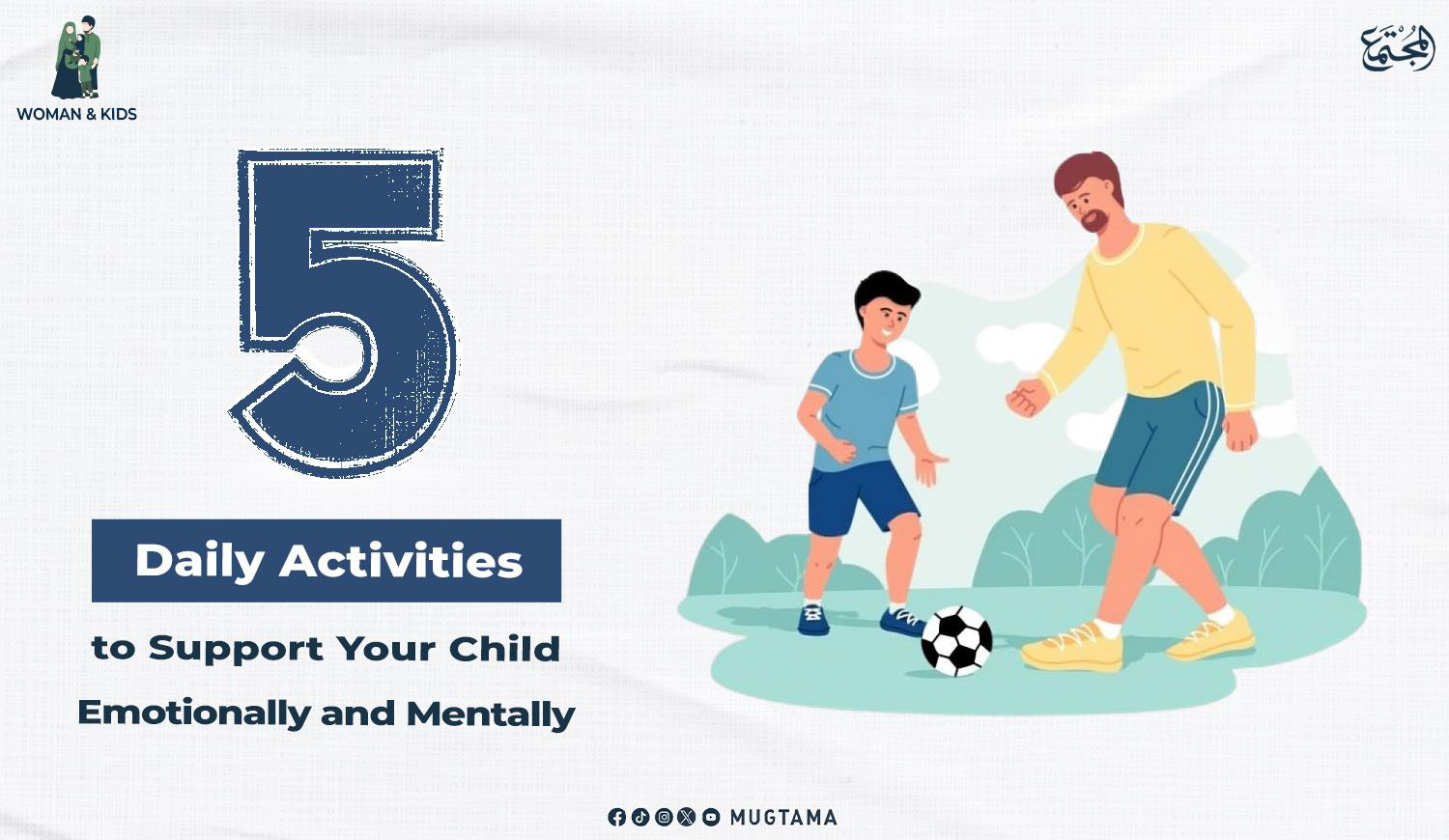5 Daily Activities to Support Your Child Emotionally and Mentally

A father or mother can provide a
rich meal of psychological and emotional support for their children through ordinary, simple daily
interactions and easy activities accessible to everyone.
This support, especially at the
start of the new school year, represents a major addition for the child at a
young age, a motivator for development and achievement, and a factor of
psychological stability. It shapes the child into a balanced and successful person, capable of interacting with others.
Modern studies confirm that
children who enjoy better family support tend to achieve better academic performance and
stronger relationships with peers and teachers. It also enables them to
interact harmoniously with peers and adults, resolve conflicts, and build
friendships.
Educational and psychological
experts state that social-emotional learning programs reduce drug abuse,
resorting to violence, and mental health disorders among students.
Five Daily Activities Affecting Children’s Lives
These lines present to parents
five daily activities or behaviors that make a difference in a child’s life,
nurturing self-confidence, intellectual and mental maturity.
1.
Hugging
Hugging is a simple step that
costs the father or mother nothing, but it works like magic in the heart of
their child. Warm physical contact, such as hugging or patting on the shoulder,
goes beyond expressing love; it becomes a powerful neurological stimulant.
Ignoring this behavior is
dangerous. Though it may seem ordinary, it actually builds a solid foundation
for healthy mental growth and a child capable of facing challenges. Hugging
also reduces levels of the stress hormone (cortisol) and increases the release
of oxytocin; the hormone associated with feelings of safety.
2.
Conversation
Talk with your child daily,
listen to them, understand their point of view, and meet them at their level
and age. Do not display superiority and avoid using command-based language.
Daily conversation is the
cornerstone of intellectual and linguistic growth. It stimulates the brain,
develops thinking, dialogue, and social skills, and strengthens emotional bonds
between parent and child.
3. Playing
Share your child’s game, help
them dismantle and reassemble toys, engage in a non-violent challenge, or
participate in a playful competition. Play is a key driver of brain
development.
It develops planning and
negotiation skills, enhances motor abilities, and may reveal hidden talents in
the child that the family had not yet discovered.
4.
Reading
Reading a story or a
simple book to children daily enhances their language skills, sharpens mental
abilities, and develops concentration, thinking, and memory. It enriches their
vocabulary and improves visual and auditory perception.
A medical study confirms that
reading to children strengthens the emotional bond between child and parent,
giving the child the sense of security necessary for healthy mental growth, according
to the American Academy of Pediatrics.
5.
Positivity and Responsibility
Involve your child in household
tasks or assign them a responsibility, such as making their bed, cleaning their
cup, setting the dining table, organizing their wardrobe, or preparing a simple
meal.
Developmental and behavioral
pediatric experts say that practicing these activities regularly develops the
child’s personality, enhances task management, instills cleanliness,
organization, and prioritization skills. It also boosts self-confidence, responsibility,
independence, and decision-making abilities.
Also Read:
- How to Enjoy Raising Our Children? (4) Educational Environment in Parenting
- Emotional Deprivation in Children
- O Parents… Be Kind and Fulfill Duties to Your Children
-------------------------------------------------------------











